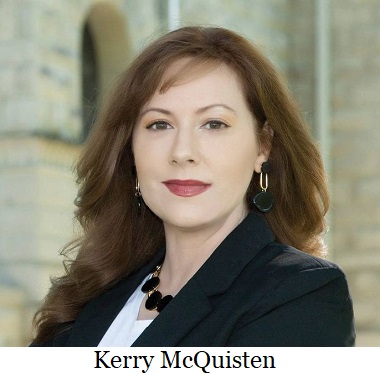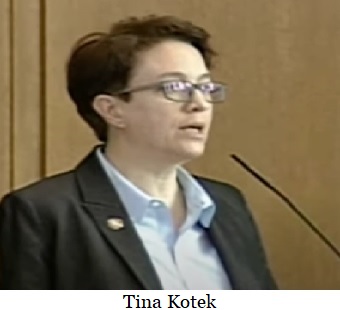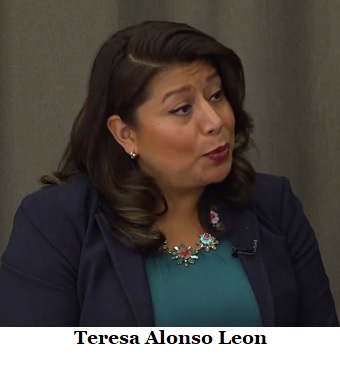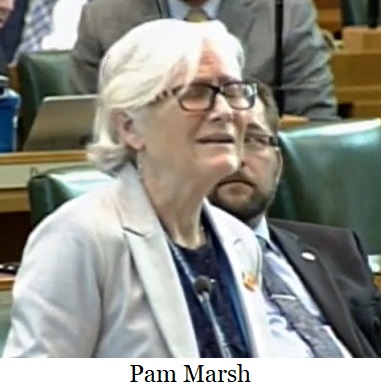 Post an Event
Post an Event
| Benton County Republicans’ Private Fundraising Event, “Bent-on Boots and Bling” with Trey Taylor |
| Friday, September 5, 2025 at 5:00 pm |
| Featuring Trey Taylor
Music Private Event
Friday, September 5, 2025 5:00-5:30 pm VIP Reception
5:30-8:00 pm Heavy Appetizers,
Auction, Concert
Red: $750 VIP Reception
Front Row Table Sponsor
White: $500 Table Sponsor
Blue: $50 per person
Limited Seating. Get Yours Now!!!
Support Local
Dress up: Bling, Cowboy, Patriotic Benton County Republican
FUNDRAISER
www.BentonGOP.org
Get your tickets today at:
https://www.bentongop.org/event-details/benton-county-republicans-fundraiser/form
About Trey:
Trey is the youngest African American Man in Country Music History. The Denver Post wrote
"It's impossible to miss his enthusiasm. With a fondness for cowboy boots, gaudy colors and dazzling jewelry, Trey Taylor could stand toe to toe with any of the Pop, Country or even Rap
contemporaries of his generation.“ |
| Trysting Tree Golf Club, 34028 NE Electric Rd., Corvallis |
They are one hundred percent against Critical Race Theory
In 2018, Candace Owens said she wanted to “free†black voters from the decades-long grip of the Democratic Party and started her own WalkAway urging Blacks and Latinos to support a new movement she is calling “Blexit.â€
Candace teamed up with Brandon Tatum, a communications specialist and popular social media personality, to change the narrative that surrounds American minority communities and particularly African-Americans. Their primary goal is “to educate minorities across America about the history of our great country by highlighting the principles of the Constitution of the United States and the importance of self-reliance.†The two believe that change will come by building strong families in the minority communities that value the life and the sanctity of every individual.
The Blexit Foundation’s vision is focused, but not limited to, low-income and minorities by advocating for school choice and alternative educational opportunities, promoting criminal justice reform by developing educational programs to help communities avoid incarceration, championing entrepreneurship as the antidote to poverty, developing history programs that will inspire success, and present the message through evocative visual art and compelling live experiences.
Oregon’s Blexit Chapter’s Executive Director, Janira Brannigan, spoke at Western Liberty Network Zoom training on their plans in Oregon. Brannigan started by saying the organization is primarily designed to promote free thinkers. “In Oregon, we don’t just want to empower minorities, it’s for anyone. No matter how you look at it there will always be more of one color than another. We are not about race.â€
Their number one goal is advocating for school choice. They are working to empower parents to be activists, particularly in public schools. She told Northwest Observer that they are one hundred percent against Critical Race Theory. “We believe that we live in a world where everyone has the opportunity to thrive - all you need is the determination and to put in the hard work. Not the color of our skin. I am a 1st generation American from legal immigrant parents from Mexico. I was taught by my parents that the American Dream was at my fingertips but I had to go get it. They taught me that nothing is free in this world, that it all comes at a price. I see kids wanting to make a change but they are only being told one side, so their hunger isn’t being filled.â€
A D V E R T I S E M E N T

A D V E R T I S E M E N T
What is CRT? Senator Ted Cruz explains on his podcast, June 17, 2021, “CRT explains everything in the world through the lens of racial oppression, and all white people are inherently racist. You can never change your status no matter what you do. CRT is against competing on merit. It’s designed to criticize with the goal of totally dismantling the system… CRT teaches that the entire system is inherently racists and embodied in the 1619 project taught in our schools. It is Marxism combined with intense racism.â€
Blexit - Oregon is helping parents unenroll their children from public school. “Our goal is to see a 30% drop in public-school enrollment statewide,†Brannigan said. “We will not allow our children to be indoctrinated with such CRT evil. We help parents with resources to homeschool groups, co-ops, curriculum with the unaltered history, etc.â€

She also spoke on ways they want to bring the community into the educational process and mentor on entrepreneur strategies teaching young people how to become and plan for business ownership.
When asked how their program fits with the BIPOC Caucus (Black, Indigenous and People of Color), Branningan said, “I don't know much about them except that they are an organization based in self-segregation that see government as their savior. We don't stand under that banner. We are inclusive as long as potential members stand and support our mission and the five pillars.â€
Brannigan is a strong advocate of learning English. “If you don’t know the English language,†she says, “things can get lost in translation. How do you know the government is telling you the truth?†You can see her out in the community walking her talk. “Our priority isn’t the political realm, change comes from the community, concentrating on kids empowering parents to fulfill dreams. We need to teach people they have a choice. If you don’t like your party, leave, whatever that party is. We need to remove government dependence to build free thinkers.â€
You can find them at the July 4th event in Creswell handing out resources for parents.
--Donna Bleiler| Post Date: 2021-06-29 21:00:00 | Last Update: 2021-06-29 21:27:12 |
Baker City Mayor enters a crowded field
Seventh generation Oregonian and Baker City Mayor
Kerry McQuisten has declared for the Republican nomination for Oregon Governor, joining a field of Republicans from a variety of regions and viewpoints. McQuisten is widely regarded as a conservative.
McQuisten describes her decision:
"In 2020 and 2021, like many Oregonians, I was in a 'fight or flight' pattern, trying to decide whether to move out of the state due to Kate Brown's draconian lockdowns, or stay and try to create change. After driving through most of the western half of the United States, it became clear to me that those states still felt like Oregon had felt when I was growing up here. Freedom, hope, and common sense still existed elsewhere.
I discovered that Oregon and our governor had become a running joke across the country, a testament to failed leadership. I was saddened and embarrassed. I was also angry. 'Fight' prevailed. I did the best I could to stand up for my people as mayor, but I knew that wasn't enough. COVID lockdowns would come to an end eventually, I knew, but Oregon needs so much of a course correction that the only way I could see to help in the way I wanted to help, was to run for higher office. After two months of calls from all across Oregon asking me to run for governor, I knew what I needed to do. I didn't make this decision lightly."
McQuisten has been involved in the publishing business much of her adult life. She founded
Black Lyon Publishing, and on her website, describes herself as "an entrepeneur, not a politician."
A D V E R T I S E M E N T

A D V E R T I S E M E N T
--Staff Reports| Post Date: 2021-06-29 20:10:36 | Last Update: 2021-06-29 21:41:45 |
Twenty different states will begin the practice
Oregon's Governor Kate Brown has now signed
Senate Bill 5 into law.
This will allow college athletes at Oregon’s public and private universities to receive compensation for use of their name, image, and likeness.
The bill was sponsored by Senate President Peter Courtney (D-Salem) and Senator James Manning, Jr (D-Eugene).
“This bill is historic... I wish Oregon was the first to do it,†said Senate President Peter Courtney (D-Salem). “Our college athletes have not been treated fairly. They sacrifice everything for their universities...their bodies, their relationships, their academics. Meanwhile, the NCAA and universities are making millions off their hard work... from tickets, merchandise, and concessions, all the way to college enrollment. “We are giving our athletes back what is rightfully theirs: their name, their image, their likeness. This should have been done a long time ago. It should have come from the NCAA and our universities. This is just the beginning. We must keep working to make sure our college athletes are treated fairly.â€
Beginning July 1st of this year, college athletes are given the right to sign contracts that provide compensation for use of their name, image, and likeness, including through endorsement deals and appearance fees.
College athletes will also be allowed to retain professional representation, increasing fairness during contract negotiations.
Oregon joins 7 other states on July 1st in being the first to enact name, image, likeness laws in the country. An additional 13 states have passed similar legislation that will take effect soon after.
--Bruce Armstrong| Post Date: 2021-06-29 13:16:13 | Last Update: 2021-06-29 13:26:12 |
Bureaucrats are struggling to loosen mask mandates
If you choose to drop by your local Oregon DMV office to see if you can get standby service, many offices have a modern version of “take a number†– a “virtual lobby†that will text you when your turn at the counter is coming up. The DMV says people are to wait in your car or nearby the DMV.
“If you visit without an appointment, there is a chance the office won’t have the capacity to serve all customers that day, and you may need to visit another day,†DMV Administrator Amy Joyce said. “That’s why we recommend appointments – to save you from waiting with no guarantee that office has capacity that day.â€
When COVID-19 restrictions end this week, no later than June 30, DMV offices will no longer require masks or physical distancing, or pandemic-related capacity limits on indoor waiting areas.
However, it seems that the
Oregon DMV will continue to require masks during drive tests for both customers and drive test examiners.
Some DMV services require an in-person visit – such as issuance of your first Oregon permit or license, testing, or adding the Real ID option or a motorcycle endorsement, and the demand for those services remain very high. There are
some services available online.
--Bruce Armstrong| Post Date: 2021-06-29 12:40:44 | Last Update: 2021-06-29 13:02:36 |
Many Oregonians are tapped out from taxation
A tactic meant to raise revenue for the Oregon government through more taxation on the people of Oregon has now passed through both chambers of the Oregon legislature and is awaiting Governor Kate Brown's signature.
SB 139 has just passed (32-26) in the House chamber mostly on party lines, but with some opposition from a few Democrat legislators.
Former Republican Senator Brian Boquist (I-Dallas) supported the legislation and voted yes on SB 139. The Senator has been known to be a somewhat controversial legislator, he has previously drawn the ire of his former party affiliates by helping to pass infringements on the Second Amendment in recent years.
Two Democrats in both the Senate and the House voted “NO†on Senate Bill 139, a bill that will generate over $40 million in new revenue for the State of Oregon off of the backs of Oregon businesses.
In fact, representatives from many Oregon industries and businesses submitted digital testimony, as lobbying in-person at the capitol building was still banned due to supposed covid restrictions. However, much of the digitally submitted testimony seems to have been routinely ignored by the legislators, instead choosing to rush through the process, and especially in the last days of the legislative session.
Adair Village Mayor, small business owner and former Chair of the Oregon Republican Party Bill Currier wrote this column about how bad this bill is in a
recent edition of the Oregon Catalyst.
No Republicans voted “YES†on SB 139 since Senator Boquist is no longer a Republican.
Meanwhile, numerous Republicans spoke forcefully against this attack on business in Oregon including Rep. Bill Post (R-Keizer) as seen in this video:
Representative Bill Post on SB 139.
--Bruce Armstrong| Post Date: 2021-06-28 14:38:48 | Last Update: 2021-06-28 14:42:22 |
Suspension will be in place for 48 hours
With the current and fore-casted heat in Oregon, the Office of State Fire Marshal is
suspending regulations that prohibit the self-serve of gasoline at retail gasoline service stations.
Governor Brown’s Office approved the suspension of the regulations. The suspension will be in place for 48 hours, until the evening of Tuesday, June 29th, 2021.
This suspension of the self-service regulations does not affect areas of the state or time frames that are already authorized for self-service refueling under Oregon law. Information about the rules suspension for self-service gasoline can be found on the
Oregon State Fire Marshal (OSFM) website.
--Bruce Armstrong| Post Date: 2021-06-27 21:25:03 | Last Update: 2021-06-27 22:25:27 |
People of Oregon were banned from capitol
The 2021 Oregon Legislative Session has officially adjourned, marking an end to a sadly controversial legislative session for Oregonians. The public had been banned from attending to the businesses of their own governance at the Salem capitol building, with only one Republican Representative strongly advocating for their attendance. That Representative was Mike Nearman, of Independence, Oregon, and he was expelled by his fellow legislators for opening a door for the common people.
Senate President Peter Courtney (D-Salem) and House Speaker Representative Tina Kotek (D-Portland)
made the call to exclude the people of Oregon from attending legislative functions at the capitol building. This seems to have accelerated the passage of many policy bills, which would have likely been halted from public input and participation.
Since January, although they were in the minority, House Republicans called for this year’s session to concentrate on relief for Oregonians negatively affected by the pandemic, natural disasters, address learning losses and protect jobs.
While harmful legislation was still passed on party lines, Republicans were able to weaken or eliminate some of the worst offenders.
At the same time, Republican caucus members celebrated several wins such as better protections for students, a common-sense solution to lower the cost of cold medicine, relief for property owners, and more.
“I’m proud of the work we accomplished for our communities and for Oregonians across the state this session. From the start, we called for a focus on pandemic recovery, returning students to school and assistance to wildfire impacted communities,†said House Republican Leader Christine Drazan (R-Canby). “As the legislative session progressed, it was clear transparency suffered as public policy was rushed through behind closed doors. This harmed communities, businesses and families. As the Oregon economy recovers, businesses reopen and students return to school, we must ensure the policy making process also returns to normal, which must include reopening Capitol to the voices of Oregonians.â€
--Bruce Armstrong| Post Date: 2021-06-27 09:50:04 | Last Update: 2021-06-27 13:00:56 |
More bureaucracy on it’s way
A bill that would further impose governmental bureaucracy upon child care in Oregon is moving through the Oregon legislature.
HB 3073 has now passed through both the Oregon House and Senate chambers of the Oregon legislature and awaits being signed into law.
The bill was chiefly sponsored by Representative Karin Power (D-Portland), Representative Jack Zika (R-Redmond), Senator Kathleen Taylor (D-Portland), Representative Teresa Alonso Leon (D-Woodburn), Cedric Hayden (R-Roseburg), Bobby Levy (R-Echo), Courtney Neron (D-Wilsonville), Greg Smith (R-Heppner), Senator Kayse Jama (D-Portland), and Senator Tim Knopp (R-Bend).
The bill does a number of things to child care in Oregon, firstly, it will change the name of the Early Learning Division to Department of Early Learning and Care.
It will also establish the Department of Early Learning and Care as state agency that is separate from Department of Education and that functions under, and is coordinated by, the Early Learning Council. It will also revise the goals of statewide early learning system.
It prescribes expanded duties, functions and powers of Department of Early Learning and Care, including administration of Employment Related Day Care. It also modifies the requirements of employment related day-care.
Furthermore, it directs the Early Learning Division, Department of Education and the Department of Human Services to develop and implement plans for seamless transfer of relevant duties, functions and powers, and to report on plans to appropriate interim committees of Legislative Assembly.
It is yet another bill that has the emergency declaration attached, and is therefor effective on passage.
--Bruce Armstrong| Post Date: 2021-06-27 09:06:19 | Last Update: 2021-06-27 21:28:26 |
“This is a historic investmentâ€
As the 2021 Legislative Session comes to an end Senate President Peter Courtney and Speaker Tina Kotek were quick to send out a series of articles featuring how much of your money they spent.
Peter Courtney’s headlined three articles:
Lawmakers Pass Groundbreaking Package, Invest More Than $470 Million in Behavioral Health.
“The 81st session will be remembered as the one where we finally started making investments to bring about the promise of the deinstitutionalization of people with mental illness and started making community based treatment an actual reality,†said Representative Rob Nosse (D-Portland). Somewhat of a contraction since deinstitutionalization took place years ago with no help for communities faced with what to do for them.
“We must mainstream mental health. Until we treat mental health like we treat the rest of health care, we’re not doing enough,†said Senate President Peter Courtney (D-Salem). “This is a historic investment. It will save lives. We must help children and adults struggling with mental illnesses from falling through the cracks.â€
Legislature invests over $600 million for wildfire recovery and prevention
“Last year’s fires were devastating. Oregon and her people are still recovering,†Senate President Peter Courtney said. “We made real progress this session to help our communities rebuild. We changed the way we respond to wildfires. The Legislature will help wildfire survivors get back on their feet.â€
This allotment is mostly for infrastructure projects, grants and financial assistance along with $75 million for food and shelter for wildfire survivors and $23.2 million to reimburse counties for lost tax revenues.
$765 million in investments headlines legislative housing accomplishments
What became a crisis during the COVID-19 lockdown has been compensated for and then some. In the months leading up to the session, the Emergency Board approved more than $500 million in rental assistance and other housing supports.
- Homelessness received $118.8 million along with three bills providing more possibilities for shelter.
- Tenant Support received $18,3 million plus three additional bills providing assistance.
- Homeownership received $65 million and added four bills addressing disparities in home sales and ownership.
- Housing Supply received $578,45 million along with five bills easing zoning laws for affordable housing.
Speaker Tina Kotek published her own list that includes:
- $9,3 billion for k-12 schools.
- $578.5 million for K-12 education projects.
- $2.222 billion higher education
- $77.5 million early learning
- $687.2 million for transforming behavioral health.
- $816.9 million for tackling the housing crisis.
- $706.75 million investing in wildfire recovery and disaster preparedness.
- $442 million to improve water systems.
- $543.5 million supporting a strong economy recovery.
- $124.3 million improving transportation infrastructure.
- $258.9 million focusing on racial equity.
The millions for building a strong economy recovery is more like recovery for pet projects. It includes grants for movie theaters and live events, investments in emerging business with a priority on the underrepresented, grants for Oregon Main Street Revitalization, rooftop solar rebates, and several bills funding various workforces and higher wages in the healthcare field.
There remains the questionable constitutionality of some of the seventeen categories that focus on racial equity after two federal judges ruled against using race or gender as a priority.
Keep in mind that all this spending doesn’t include state agency budgets. These expenses may not all come from General Funds, but even Other Funds comes from fee payers. Despite what President Courtney and Speaker Kotek tout as an accomplishment, the money comes from us one way or the other.
--Donna Bleiler| Post Date: 2021-06-26 18:18:32 | Last Update: 2021-06-27 21:24:11 |
“Many critical issues were left ignored by the supermajorityâ€
Today concluded the 2021 legislative session. For some, it was defined by not a single member of the public being allowed into the Capitol building, unprecedented in the history of Oregon. The House
expelled a member, again, unprecedented.
Senate Republican Leader Fred Girod (R-Lyons) released the following statement:
“The best bill of the session is always sine die.
“Legislatures around the country found a way to allow citizens into their buildings to meaningfully participate in the legislative process. Not in Oregon. That was a travesty of democracy, transparency, and accountability.
“As much as we disagreed this session, Republicans and Democrats were still able to do some good things for Oregonians. We were able to make major investments in wildfire recovery. Bipartisan police reform was passed and Republicans were able to pass major bipartisan public safety reforms to protect vulnerable Oregonians.
“This session, Republicans lifted up the voices of students and parents by pushing for choice and opportunity in education. Republicans were strong supporters of getting kids back in school after a year of lost learning. We were able to kill some harmful tax increases and protected most of the Kicker. We also stopped harmful anti-public safety legislation.
“Unfortunately, Democrats advanced an extreme agenda that will continue to artificially depress Oregon’s potential. Many critical issues were left ignored by the supermajority, like reforming the Governor’s emergency powers. It’s now our job to educate Oregonians about these harmful policies and earn their trust to govern.â€
The Oregon Legislature is expected to convene in September for a short special session to take up redistricting. It is next scheduled for a constitutional short session on February 1, 2022.
--Staff Reports| Post Date: 2021-06-26 17:54:23 | Last Update: 2021-06-26 18:18:32 |
California-style rolling blackouts and brownouts could result
As the 2021 legislative session comes to a close, Democrats are intent on finishing it in style by passing
HB 2021. The bill would require the utility companies that power 61% of Oregonians to completely transition to unreliable energy sources. It was introduced by Representatives Pam Marsh (D-Ashland) Khanh Pham (D-Portland) and Senators Michael Dembrow (D-Portland) and Lee Beyer (D-Eugene).
The policy could result in California-style rolling blackouts and brownouts during times that the power grid is strained. Of course, Oregonians would be paying higher electric bills for that privilege. The bill would further hurt jobs and economic development as businesses’ energy costs would skyrocket.
“Hiking Oregonians’ energy costs during an economic recovery is one of the dumbest ideas I have ever heard of,†said Senate Republican Leader Fred Girod (R-Lyons). “This kind of stupidity has become common in Oregon because of the majority party. This bill just adds insult to injury to the countless Oregonians who have endured massive hardship over the last year and a half.â€
The bill lays out completely unattainable emissions reduction goals that even if reached, would deliver virtually nothing in measurable environmental benefits.
“This bill accomplishes nothing for our environment,†Senator Girod continued. “It is simply a bill to virtue signal to extreme environmentalist groups that will cause Oregonians to pay more for less reliable energy.â€
HB 2021 passed the Senate over bipartisan opposition on a vote of 16-12 and now heads to the Governor’s desk.
--Staff Reports| Post Date: 2021-06-26 17:36:54 | Last Update: 2021-07-04 23:33:27 |
Among five candidates to be considered
The Oregon Republican Party held the House District 23 Nominating Convention on Friday, June 25th, and the eligible delegates of that district have chosen 5 contenders among the 10 candidates that were considered. Voting delegates of the convention were required to be Republican PCPs (Precinct Committee Persons) of HD 23, as per Oregon election law.
Mike Nearman received the most votes, and seemed to be the clear first choice of the voters.
Nearman gave the following statement after the convention:
"I'm humbled that my fellow Precinct Committee-persons voted overwhelmingly to return me to the House as their representative. The fact that they chose me shows that they value someone with courage and principles that will stand up to Democrats, the media and even their own party to do what is right."
Those considered at the convention were allowed time for candidate speeches and took turns answering questions for the voting delegates.
Those candidates were:
- Jeff Kubler
- Beth Wytoski
- Mike Nearman
- John Swanson
- Anna Scharf
- Jim Thompson
- Jim Bunn
- Mickey Garus
- Harry Noah
- Warren George
The convention started off with discussion on whether 3, 4, or 5 nominees should be selected for county commissioner consideration.
The voting body decided on 5 nominees.
After candidate speeches and three rounds of questions and answers, the body voted and the election results were announced.
The finalists chosen were in order of most votes received were:
- 1) Mike Nearman
- 2) John Swanson
- 3) Jim Bunn
- 4) Mickey Garus
- 5) Anna Scharf
Those nominees will now be considered for appointment to be Representative of House District 23 in the Oregon legisalture by the Commissioners of Polk, Marion, Yamhill, and Benton counties. That process is expected to be concluded by July 9th, 2021.
--Bruce Armstrong| Post Date: 2021-06-26 10:25:11 | Last Update: 2021-06-26 12:19:03 |
Read More Articles








 She also spoke on ways they want to bring the community into the educational process and mentor on entrepreneur strategies teaching young people how to become and plan for business ownership.
She also spoke on ways they want to bring the community into the educational process and mentor on entrepreneur strategies teaching young people how to become and plan for business ownership.











